Tyton Partners' Time for Class Toolkit offers resources to help higher education administrators and faculty members make decisions about, and plan for the future of, digital learning.

Digital learning continues to become more mainstream as an increasing number of colleges and universities look for ways to fully integrate technology into innovative instructional practices and enhance the educational experience.
Since 2014, Tyton Partners and Babson Survey Research Group, with support from the Bill & Melinda Gates Foundation, have conducted a longitudinal survey of more than 4,000 higher education faculty and administrators at 1,624 unique postsecondary institutions. Their goal for the Time for Class survey is to help stakeholders better understand digital courseware and other learning tools and, ultimately, to increase affordability, accessibility, and overall success for students.
In May 2019, Tyton Partners released the Time for Class Toolkit [https://www.everylearnereverywhere.org/time-for-class-toolkit], a set of action briefs based on research from the survey and "designed to support institutional dialogue, decision-making and action around instructional practices and digital learning tools, especially adaptive courseware." The nine briefs are intended to help higher education administrators and faculty make decisions and plan for the future.
Three of the briefs cover digital learning:
- Bridging the Gap
- Taking a Portfolio Approach to Managing Digital Learning Initiatives
- Aligning the Student and Faculty Technology Experience
Six of the briefs relate to courseware:
- Making the Case for Courseware
- Scaling Courseware Adoption
- Adopting Courseware Through Course Redesign
- Designing Professional Development for Impact
- Creating a Positive Courseware Adoption Experience
- Understanding Adaptive Courseware
Below are some of the key findings, extracted from the toolkit and reprinted with permission.
1. Administrators report a promising, but persisting, strategy-to-execution gap when it comes to digital learning initiatives. Although many claim digital learning is an important priority for their institution, they do not report that their institutions are achieving ideal environments for digital learning.
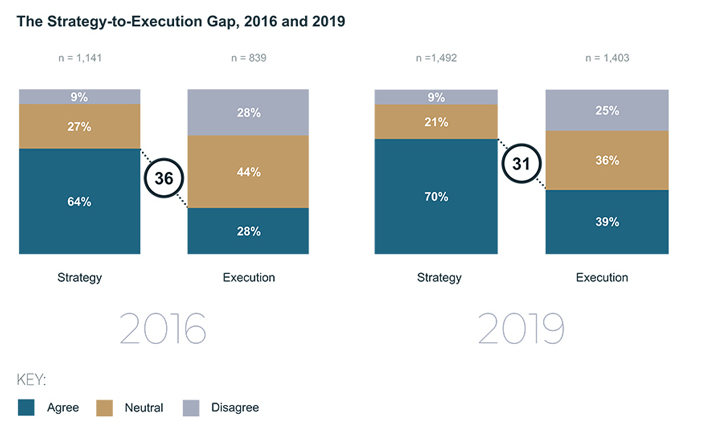
In 2019, the percentage gap between strategy ("My institution views digital learning as strategic for achieving our goals") and execution ("My institution is achieving an ideal digital learning environment") decreased to 31, from 36 in 2016.
2. Professional development is seen as the leading enabler of successful digital learning initiatives. Where professional development is required, or where faculty choose to participate, they report significantly better institutional outcomes for digital learning.
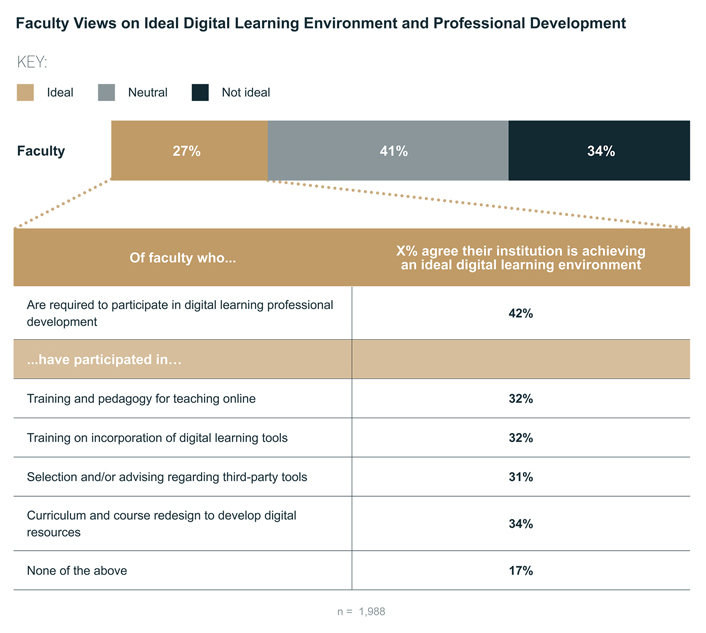
Faculty who participate in professional development are also more likely to adopt courseware. While only 27% of faculty overall note that their institutions are achieving an ideal digital learning environment, 42% of faculty at institutions that require professional development report that their institutions are achieving an ideal digital learning environment.
3. Although there are many factors (financial and otherwise) that can contribute to successful digital learning implementation, professional development and support for faculty is the top factor as cited by both faculty and administrators.
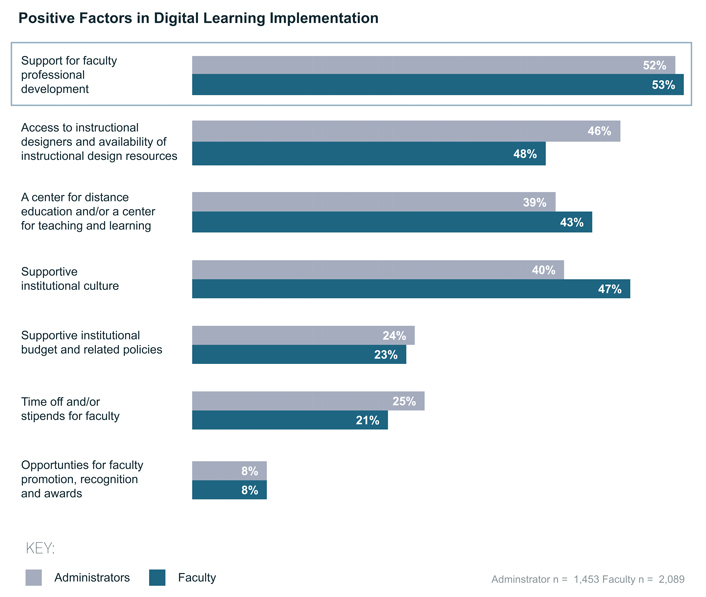
4. On-the-ground progress to implement professional development lags at most institutions. Only 19% of administrators say that digital learning professional development has been implemented effectively and at scale. Almost half (49%) say implementation is in progress or being planned, and 33% say it is incomplete.
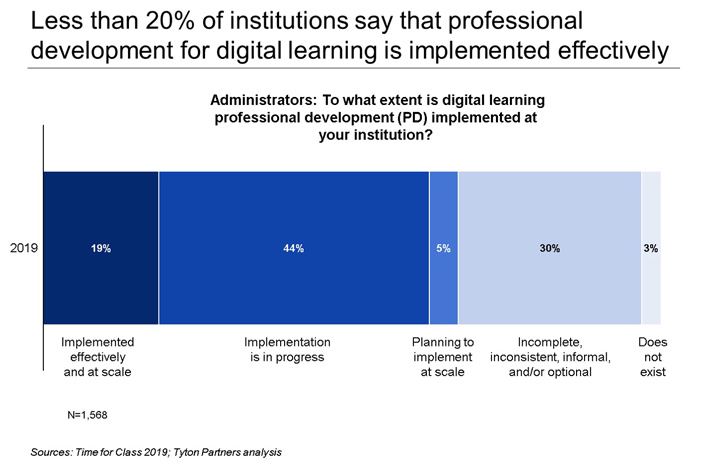
5. Courseware has been adopted by almost one-third of faculty. 77% of current users plan to continue or increase using courseware, which may be driven by the improvement in courseware product satisfaction.
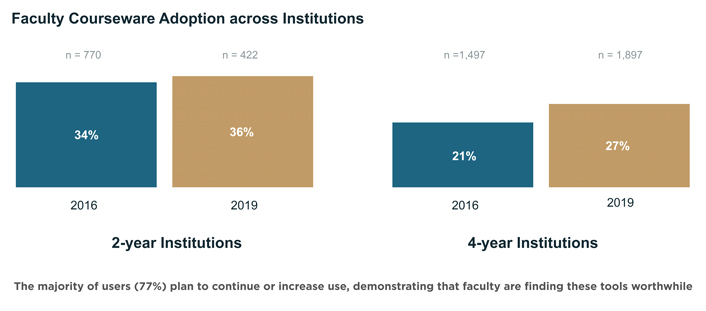
For more information, download the full toolkit [https://www.everylearnereverywhere.org/time-for-class-toolkit].
EDUCAUSE and Tyton Partners are two of twelve foundational partners of the Every Learner Everywhere solution network funded by the Bill & Melinda Gates Foundation to assist institutions of higher education use adaptive learning technology to improve teaching and learning with a focus on increasing the success of first-generation students, low-income students, and students of color.
Kristen Fox is Director at Tyton Partners.
© 2019 Tyton Partners. The text of this work is licensed under a Creative Commons BY-NC-ND 4.0 International License.
